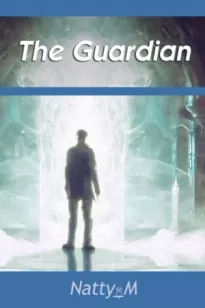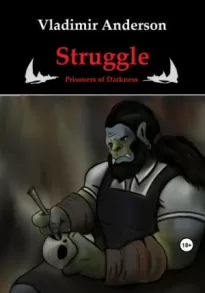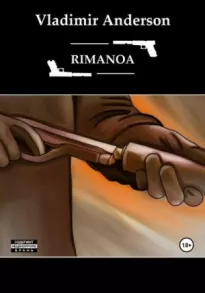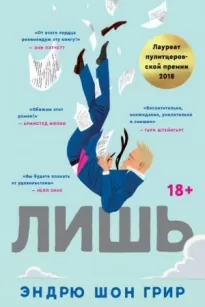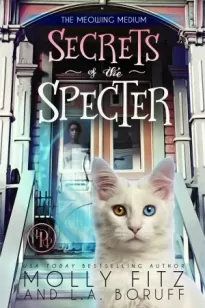The Librarian
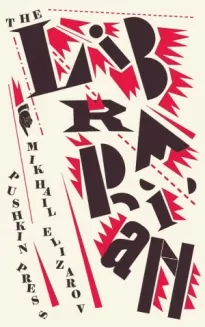
- Автор: Михаил Елизаров
- Жанр: Современная проза / Социальная фантастика
- Дата выхода: 2015
Читать книгу "The Librarian"
BREATHING SPACE
THEY HELPED ME clamber onto the roof of the bus. From up there I surveyed the road that cut across the dreary meadow like a cartridge belt—our pursuers had long ago changed their run to the jogging pace of a trek. Small scattered gangs were seeping stealthily out of the forest, but they were in no rush to storm us.
Our enemies occupied the huts farthest away, on the outskirts of the village. The campfires of numerous bivouacs blazed up in the meadow; axes started tapping. Then I realized that the combined army had called a halt; nothing could be expected to happen in the next few hours, and I could get down.
When I reached the ground I felt blood squelching in my boot. The frenzy of battle was gradually receding. Bruises I hadn’t felt before flared up under the tyre rubber. My forehead was burning as if it had been bandaged with a dressing of crushed glass.
Ievlev pulled a long fragment of the snapped-off tip of a Yakut pike out of his leg. Vyrin took off his jacket cautiously, to avoid causing himself unnecessary pain. The roubles had left crimson imprints on his back and sides. Dzyuba could only see with one eye—the other had almost disappeared under a blue swelling. On his left hand, instead of a middle finger and little finger Ozerov had wiggling scraps of skin and gnawed chicken bones. He hadn’t even noticed when it happened to him. Kruchina had taken a close swipe to the jaw with a club and the sharp spikes had ripped deep into his cheek and chin. Marat Andreyevich had paid for ramming the gates with a rib broken against the steering wheel and numerous contusions…
Smeared with their own blood and the blood of others, mauled and weary, the Shironinites gradually revived. The emerging physical pain brought with it the bitter realization of irreparable losses. The failed breakout had cost us dearly. Sukharev and Lutsis had been killed; Svetlana and Veronika had bled to death…
My throat constricted as if it were caught in a prickly noose when Anna fell on her sisters’ bodies and started wailing. Tanya wept and even stern Igor Valeryevich sobbed. Grisha could barely hold back his tears. Marat Andreyevich’s face had turned to stone and his teeth were clenched. Nikolai Tarasovich turned away so that no one would see his eyes. Ozerov, Dzyuba and Garshenin stood there with their heads lowered…
But, alas, there was no time for grieving. We carried our dead comrades into the house and then Marat Andreyevich started treating our wounds. By sheer luck, all the medical supplies were in the bus. Ozerov’s crushed fingers were removed immediately. He bore the amputation manfully, without a single groan. For more than an hour Marat Andreyevich treated and stitched up ragged wounds, staunched blood, applied splints to cracked bones, wound on bandages and rubbed ointment into bruised and battered shoulders, sides and backs.
Relentless pain poked about with a needle between my neck vertebrae and fanned glowing coals under the dressing where my leg had been torn by a harpoon. I greedily ate a full pack of analgin and then asked for another one. Soon my body lost all sensitivity.
As far as our strength and medical analgesia permitted, we reinforced the yard, rolling out metal barrels that had not previously found any use in our home life and setting them along the wall. We set a platform of planks across the metal bottoms so that we could get above the stockade and repel the attacking enemy from up there. The cobblestones that had been used to pave the paths were gouged out of the earth and piled in heaps. The rear windows of the bus were blocked off with logs. Only after we had prepared the village soviet for a storm did we allow ourselves a brief breathing space. The stalwart Ievlev and Garshenin volunteered to be sentries.
In the porch I collapsed, exhausted, onto the couch, sticking the first bag that came to hand under my head. A sharp corner jabbed into my temple. After contemplating the discomfort, I pulled out the wooden frame with Margarita Tikhonovna’s photograph in it. I read the dedication, noting to myself that the recipient of this kind memento was unlikely to survive the next day. There was no hope left, just as there was no trace of my former despondency.
Following the established tradition of the world, before facing deadly danger, I had to put my earthly affairs in order. After a moment’s thought I quickly came to the conclusion that I didn’t really have any. Neither did I feel any fear in the face of the imminent battle.
For the sake of decency I remembered my father, my mother, my sister and nephews, but somehow I felt neither love nor tenderness. I gazed into my family’s faces with surprised indifference. They seemed to me like pale copies of a dream from last year. It was absurd and ridiculous to feel any familial emotions for these ghosts. The city where I had lived for almost thirty years, my school, my two institutes, my former wife, my work—it had all become a stupid, unreal game, like some boring popular film that I had watched many years ago in a summer cinema in the Crimea.
A sticky sense of unease forced me to open my eyes. It was simplest of all to blame this incomprehensible coldheartedness on the analgin, which had numbed my feelings as well as my body, but I knew another explanation. I had read Gromov too often. The Book’s implant, full of sparkling happiness, had invaded the entire space of my memory, simultaneously rendering my own childhood worthless. I had to make a serious mental effort finally to convince myself that this sequence of faded portraits, burned-out events and blurred landscapes was once my real life.
I spent a long time splashing cold water onto my face out of a bucket, and the apparition that had restricted my breathing relaxed its grip. To be honest, I no longer understood what I had been afraid of. Alexei Vyazintsev’s self-awareness was not in any fundamental danger; he had always remained himself, regardless of the nature of his memories.
I reminded myself yet again of the strict mental discipline without which the Book would undoubtedly herd the events of my childhood into the reservation of forgetfulness. But then this touching concern was also absurd. Was it worth taking care of this ordinary past, or feeling compassion for its morose shadows, if soon there would be no present, and no future either?
A campfire was blazing in the yard. The entire reading room gathered round the flames. Ievlev sang a front-line song about a dark night. Ozerov pensively tested the blade of his axe with his thumb. Vyrin dozed, leaning on Marat Andreyevich’s shoulder. Tanya honed the point of her rapier with a whetstone. Anna was a frozen, hunched-over stone idol. Garshenin strode round the edge of the village soviet’s roof with a pair of binoculars—watching over the surrounding area.
Thunder rumbled somewhere far beyond the forest, as if someone had run across a booming metal roof. In the black sky, lilac veins swelled up and faded away, but no raindrops fell.
“How are you feeling, Alexei?” Marat Andreyevich asked solicitously.
“Fine… I slept a little bit.”
“Well, now, sleep’s good,” Marat Andreyevich agreed. “Take this, I’ve been wanting to return it for a long time…” He handed me the case with the Book.
I took the solemn attribute of my post as librarian, put the chain round my neck, sat down between Dzyuba and Tanya, and looked round at the silent Shironinites. Ievlev broke off his song, Kruchina and Ozerov set aside their weapons. Vyrin stood up. They were all expecting something from me, perhaps some farewell words.
“There are a couple of hours left before dawn,” I said, opening the little steel doors of the case. “There won’t be another chance. I suggest that we listen to the Book…”
I cleared my throat and began without any intonation or expression, as if I was listing off the printed words. By the end of the reading my voice was hoarse and had lost all its resonance. My back was numb, the lines crept about like graphic gnats, but none of that mattered at all. I had known many of the paragraphs off by heart for a long time, and I only had to touch the text for it to leap out of its own accord. I whispered the end of the final page and slammed the cover shut.
There was a smell of gangrene and death from the direction of the ravine to which we had carried our enemies a day earlier. The wind drove along grey clouds and the rushing moon was a bleached, smoky-white blob. Scattered dewdrops appeared on the long blade of a rapier stuck into the ground. The same sparkling water drops, glinting on Ozerov’s axe and Kruchina’s bayonet, were suddenly transformed into round, glassy, magical decorations on a tree, reflecting the New Year and the entire, blindingly festive, happy world of my childhood. The kaleidoscope of remembrance took a bend, flinging out the crystal pattern of a new memory…
